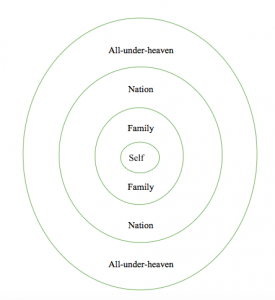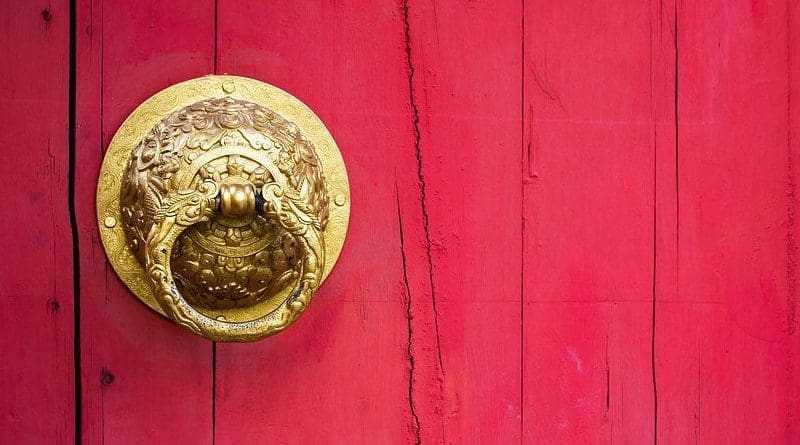The End Of ‘End Of History’ And The Rebirth Of ‘First Man’? – OpEd
Francis Fukuyama, professor of political science at Stanford University, proposed his theory of “end of history” at the beginning of the 1990s which supposes liberal democracy as the one and only form of governance the world must aspire to — one which represents the highest achievement of civilization in terms of governance. Such a theory is at the brink of collapse, as it could not even face off a virus which another civilization — China – is on the verge of triumphing.
What are the reasons for this? The answer is simple. The question lies not in the virus itself; it lies on the effectiveness of governance and the ability of government and her peoples to face it off. The West is long-entrenched in the fallacy that her superiority and preponderance in world affairs stems from the relative ability of other civilizations (a commonplace realist presumption)- it is not; the instances of the new coronavirus disease shows a civilization derives its attractiveness and respect from others not from its relative power or whatsoever, but from its ability to take care of her own peoples and other beings (such as the natural world) within her legal, geographical and to some extent, cultural jurisdiction.

The Chinese ancients have said: xiu shen, qi jia, zhi guo, ping tian xia (修身、齐家、治国、平天下). It means that to govern all-under-heaven (the world), one must be able to govern soundly his nation; to govern (soundly) a nation, one must be able to take good care of his family; and to take good care of a family, one must have the drive to improve himself constantly. This is best illustrated through the following cosmological diagram to the right.
This is the Chinese approach to life and governance, which starts from strengthening one’s mind-and-heart (virtues and intellectuality), and progresses fluidly and cosmically through the layers of relationality, as the Chinese sages saw a harmonious interrelationship between all-under-heaven and one’s self. Put simply, the Chinese see their strengths in and within themselves, and seeks a mission of bringing the world, the natural world and the universe into a complementary, interdependent and harmonious interrelationship. This is the vision of the Chinese nation and people and has been written into the official governing principles of the Chinese nation and its global policy initiative — the Belt and Road Initiative (BRI).
What of the West? It seems the West have yet to tap into its age-old virtues which has enabled her to thrive for long. At present-day, most in the West have unreasonably been skeptical of their leaders, and the system thereby (almost) does not allow leaders to exert firm command and control of a nation. And that I shall opine is the root cause of its self-created ineptness to effectively control a virus, which another nation has nearly done so. The West has (still) the world’s best military, technology, people (human resources) and know-how, yet it is unable to effectively utilize it, even in the neediest of times. Shall it not trigger an immediate reflection? May it not untie the option of systemic reset? Could it not bring about immediate action? The option is in the hands of Western (Euro-American) leaders and their peoples.
Here, in the East, the only thing I shall say is: What is the West doing?!
I expected Euro-American nations to be the most effective in curbing the disease, yet it has emphatically demonstrated to the world it is the least able in doing so. Such a phenomenon has surprised and staggered many, including myself. If the allied nations could win world wars and become the most superior in technology and in know-how for decades, why has it fallen behind many in fighting off a global epidemic which should require sound Western leadership?
I am no member of the Euro-American civilization and can offer no advice to the Euro-American world. But I think the key to their rejuvenation lies in the old virtues of the Euro-American world, time-tested, yet long-forgotten. This includes the assertion of The Prince (Niccolò Machiavelli; mid-century) that sound leadership and governance stems from the ability to improve the wellbeing of a nation and people, through a combination of rewards and punishments according to the virtues of meritocracy. The Euro-American world must awake from its long slumber — a slumber in the fallacies and fantasies of liberal democracy. The Euro-American civilization must sober up and realise, that their strengths and attractiveness lie in the ability to pool together the resources and imaginative power of a nation- sound virtues and meritocracy.
This is high time, if not the time for the European, the British and the American leaderships to quickly reflect and set straight a rather long-distorted thinking and national path. They have got little time left to do so, but I sincerely think they could do so. They could still venture ahead and above the virus, provided they sober up. They must, all, sober up.
*Bo Yuan Chang obtained an MA in International Relations and International Business from the University of Nottingham, Ningbo, China (UNNC) in 2017

